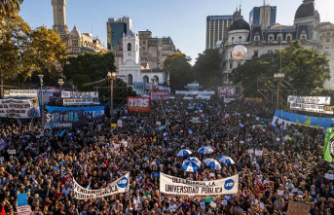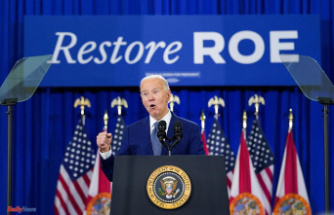The Organization of American States has approved on Wednesday the implementation of the mutual defense treaty which contemplates "the employment of armed force" to respond to acts of aggression against the countries of Latin America. At the initiative of Colombia and with the support of Brazil and the united States, the Permanent Council of this international organization has adopted a resolution by which it sets in motion a multilateral effort coordinated to force the change of government in Venezuela for the protection of the regime of Nicolas Maduro to guerrillas that are threatening the peace in the region.
The delegation of Venezuela, appointed by the opposition leader, National Assembly, has reported that Maduro has permitted the violation of the sovereignty of his country by inviting colombian guerrillas and cuban military and that, from the power, the regime threatens peace in the Americas. At this time, the foreign ministries that support the venezuelan opposition are studying what measures, beyond the diplomatic, can be applied. Sources familiar with those discussions said to ABC that one of the options is a naval blockade to suffocate the regime and cut its trade ties and military with its allies, in particular Cuba, Iran, and Russia.
Voted in favor of invoking the treaty 12 countries 19 have signed it: the united States, Argentina, Brazil, Chile, Colombia, El Salvador, Guatemala, Haiti, Honduras, Paraguay and the Dominican Republic, in addition to Venezuela. Abstained Trinidad and Tobago, Uruguay, Panama, Costa Rica and Peru. The Bahamas were absent.
The Foreign minister of Colombia has participated personally in the meeting of the Permanent Council to detail the under the regime of Mature terrorist groups and drug traffickers. "The promotion of the scheme to those illegal groups has enabled them to commit crimes against interests of colombians and threaten the peace of our region. The regime used these groups as a mechanism of social control and repression of the opposition and considers them his shield at the border," said foreign minister Carlos Holmes Trujillo. "The relationship of cooperation between the regime and these groups is the greatest threat to democratic stability and security in the region".
In a last moment, the delegations of Costa Rica and Chile tried to that the Permanent Council approve an amendment to the mutual defense treaty to commit themselves to measures to contribute "to the restoration of a peaceful democracy in Venezuela, excluding those involving the use of armed force". According to the ambassador of Costa Rica to the OAS, Montserrat Solano , "this is a decision of the highest severity, is not a decision that can be taken lightly because it affects all the countries of the hemisphere". The amendment failed, so that armed intervention is still among the options.
Mexico was opposed with great forcefulness to the invocation of the Rio Treaty, which he described as irresponsible and dangerous. "The treaty is contrary to the principles of the OAS to the defence of the peace, the security and defence of the peoples and human rights. To invoke that treaty, identified with the use of force, it is a setback and a contradiction," said the ambassador, mexican to the OAS in its turn of intervention. "If what is sought is not an armed intervention, so why resort to a mechanism obsolete as this treaty?", he asked.
The inter-American Treaty of Reciprocal Assistance (TIAR), known as the Rio Treaty, invoked for the first time in history this Wednesday, is a mutual defense pact inter-american signed in 1947 and they were part of Argentina, Bahamas, Brazil, Chile, Colombia, Costa Rica, Cuba, El Salvador, Usa, Guatemala, Haiti, Honduras, Panama, Paraguay, Peru, Dominican Republic, Trinidad and Tobago, Uruguay and Venezuela. Cuba does not participate in the OAS, but has not been out of the TIAR, as have done so in Ecuador, Nicaragua, Mexico and Bolivia.
Date Of Update: 12 September 2019, 08:00











